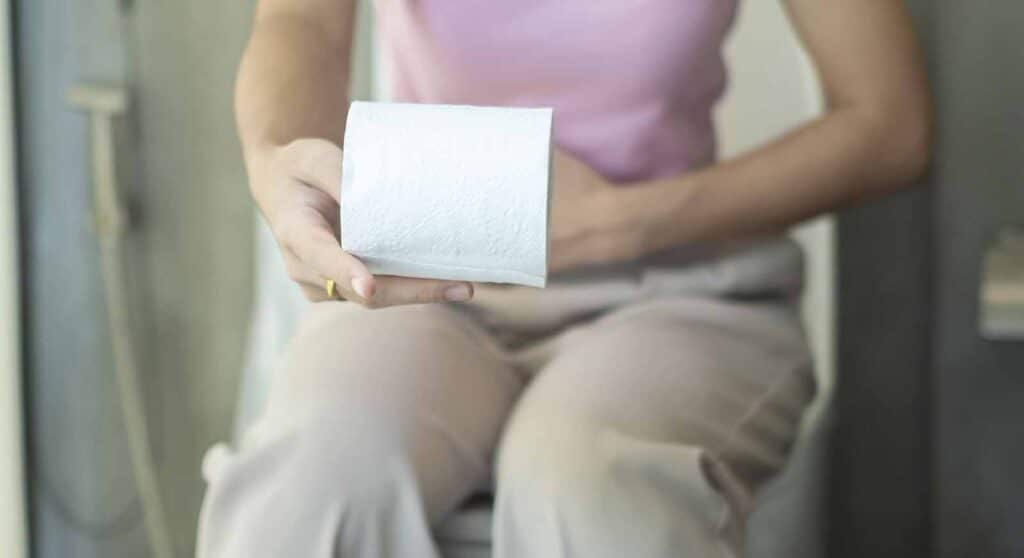When alcoholics decide to quit drinking, they may experience a wide range of symptoms while in detox and then in residential addiction treatment. Everything from body aches, mood swings, and psychological conditions are common, but what happens to their digestive systems?
Most people associate heavy drinking with liver problems and poor decision-making; however, prolonged alcohol use can affect your digestive tract. The frequency of your drinking and the types of alcohol you drink directly impact your bowel movements. So, what happens when you stop drinking completely? Does it cause constipation, and how can you deal with it during detox?

Alcohol’s Effects on the Digestive System
Alcohol consumption has become a regular part of everyday life for some people. Most of these individuals focus on how they feel when they’re drunk, allowing it to be the social lubricant they need. However, this substance has a wide range of effects on the human body that can go unnoticed for years — chief among them is what it does to your digestive tract. As your body becomes more accustomed to and dependent on alcohol to survive, it can lead to severe dehydration. As you continue to consume more, the substance prevents your body from releasing vasopressin — a hormone that helps your body regulate water retention when you urinate. The more you drink, the less you have in your system, and the more fluid you lose. As you become more dehydrated, you’re more likely to feel constipated.
Why You Feel Constipated During Detox
When entering detox, you may still feel constipated throughout the process.
Why does this happen even though you’ve consciously decided to stop
drinking? There are several reasons including nutritional issues and
dehydration.
Nutrition
Often, heavy drinkers see their nutrition take a significant hit while they
continue to increase the amount of alcohol they consume. When drinking
alcohol, they tend to consume foods high in salt content, saturated fats,
and rich in empty calories. These dietary choices can throw their entire
system out of whack. Going through detox means your body can start to return
to a semblance of normal function. Ensuring you incorporate the right
nutrients to help you fight off withdrawal symptoms like constipation can
help you navigate this vital time in your recovery. Choosing foods high in
fiber like grains, fruits, and veggie will help you deal with any feelings
of constipation. Additionally, a
nutrition education program
is an important part of detox and recovery.
Hydration
Throughout the detox process, replacing the fluids you’ve lost will help
prevent constipation and other adverse side effects. The amount of water you
should drink over the course of a day varies from person to person.
Generally, the average person should approximately drink half of their body
weight in water throughout the day; however, some say that drinking a gallon
provides the best benefits. To start, try drinking eight glasses of water to
start and see how your body responds. The appropriate water intake can help
replace the electrolytes you lose through any excessive sweating or
convulsions you experience during detox.
Healthy Oils
An area of our dietary needs that often get overlooked is the consumption of
healthy oils. Incorporating items like fish, castor, or coconut oil into
your diet can help regulate your digestion. These three types of oils can
create a laxative-type effect in your body without causing diarrhea.
Probiotics
Our digestive tracts have naturally occurring probiotics that help regulate
our systems. However, through regular alcohol abuse and a lack of nutrition,
they often aren’t at the levels they should be. Taking a probiotic
supplement can help restore your probiotic levels and improve your digestive
function.
Trust Silver Pines With Your Alcohol Detox and Residential Addiction Treatment
Dealing with the side effects of alcohol detox on your own is challenging and without the right support system in place, you risk relapsing before you ever have a chance to recover. With symptoms like constipation, body aches, and depression which are common among people entering detox, going to a facility that specializes in medically assisted detox, like Silver Pines, can give you the support you need. At Silver Pines, we offer a detox program that supports clients on their first step of their recovery journey from alcohol dependency. We also offer residential addiction treatment after the detox program is complete. If you need help, contact our team to learn more about our programs and admissions process today.



